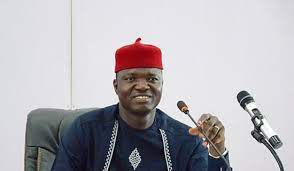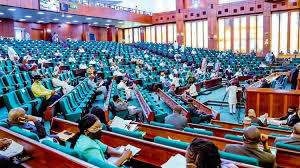Last Monday night, President Goodluck Jonathan mimicked the tough guy while reacting to Governor Kashim Shettima’s controversial declaration that the Boko Haram fighters “are better equipped and better motivated than our troops” in the seemingly everlasting terror war raging in the North-east axis.
He had told the nation during the soporific presidential media chat at the State House, Abuja that “If we pull out the military from Borno state, let us see if he (Shettima) will be able to stay in the Government House.”
Why pull the military out of Borno state? Did the governor say the troops were incompetent? I think the president over-reacted and thus missed the point. There is a difference between incompetent troops on the one hand and ill-equipped and poorly motivated troops on the other hand.
Shettima, who is feeling the heat and putting his own life on the firing line while visiting every community that comes under the cruel attacks of the insurgents, knows what he is talking about. Contrary to the president’s viewpoint, Shettima commended the military for their efforts in containing the insurgency despite their obvious handicap.
The president also denied any move to shove aside the democratic structure in the state in favour of a military administration in the belief that the presence of an ex-military general would send a strong signal to the insurgents. Come to think of it, is Da Jonah Jang, the Governor of Plateau state and a Berom, not a retired military general? Has his being at the helm of affairs in the state intimidated the ubiquitous gunmen that routinely raid the Berom axis, freely killing, maiming innocent citizens and destroying property?
As I said here last week, the president has the constitutional duty to defend every inch of the Nigerian soil that comes under any kind of threat. He is, therefore, not doing Shettima and the people of Borno any huge favour by sending the troops there. He is the commander-in-chief of the Armed Forces. Shettima does not command any troops. It is even puerile to brood about that withdrawal idea in the first place.
The governor merely re-echoed the wake-up call contained in the recent recommendations submitted to the president by the Northern Governors’ Forum. The body had met in Kaduna last week and called on the Federal Government to deploy more security personnel with SUPERIOR MILITARY EQUIPMENT as well as adopt measures to BOOST THEIR MORALE (my emphasis) to enable them to effectively fight the insurgents in the region.
The president cannot shirk his primary responsibility which is to ensure security of lives and property of all Nigerians anywhere in this country. Sadly, the intensity of insecurity has increased under Jonathan’s watch not only in the North-east but also in most parts of the country despite the billions of naira budgeted for the sector.
Unfortunately, the president appears to be playing the ostrich game. And he was cheered by his former service chiefs who would not tell him the truth about the situation on the ground, ostensibly to save their jobs.
I believe the commander-in-chief and his troops will be grateful to Shettima at the end of the day for forcing the ostrich’s head out of the sand.
His orchestrated wake-up call appears to be triggering off positive moves. This is evidenced by last week’s joint visit to the beleaguered axis by the new Chief of Army Staff, Maj.Gen. Kenneth Minimah and his Air Force counterpart, Air Vice Marshal Adesola Amosu, leading to the replacement of the General Officer Commanding the newly established 7th Division of the Nigerian Army located in Maiduguri, the closure of Nigeria-Cameroon border, as well as the president’s quick reaction to the gruesome murder of over 50 students of the Federal Government College, Bunu Yadi, Yobe… five months after the massacre of 40 students of College of Agriculture, Gujba also in Yobe state. The Bunu Yadi killings also attracted international condemnations. In the recent past, the president was known to respond to the insurgents’ attacks with (disturbing) silence.
The renewed upsurge of the activities of the insurgents once again calls for the establishment of state police. According to the Governor of Yobe state, Alhaji Ibrahim Geidam, while inspecting the ruins at Buni Yadi, the insurgents spent close to five hours carrying out the mass slaughter unhindered.
The existence of state police will complement the operations of the federal security agencies. This is not the time to play politics with these critical issues that border on the safety of lives and property of our citizens. I am an unrepentant advocate of state police. The last time I stated my position on this matter in this space, I stressed that the issue should be tabled at the imminent National Conference.
Those who oppose the idea in this precarious situation are naïve and unreasonable. Imagine the presence of home grown police personnel, well-trained in counter-insurgency operation and better equipped, complementing the federal troops in and around Buni Yadi.
Would it not have served as a deterrent to the vampires? We should even go a step further by setting up local government police as it is the case with the United States after which we patterned our system of government. We once operated a native authority police system in the northern part of this country. The US runs the federal, state and county police system. Nigeria with a population of 170m is too massive to be protected by one patina of police system that is ill-equipped and poorly funded.
Security of lives and property is a sine qua non for social and economic development of any nation. Consider also the impact such innovation will make on the unemployment space and crime reduction when each of the 36 states recruits a minimum (I nearly wrote Minimah) of 20,000 police personnel and the 774 local government councils each snaffles up no fewer than 5,000 able-bodied young men and women.



